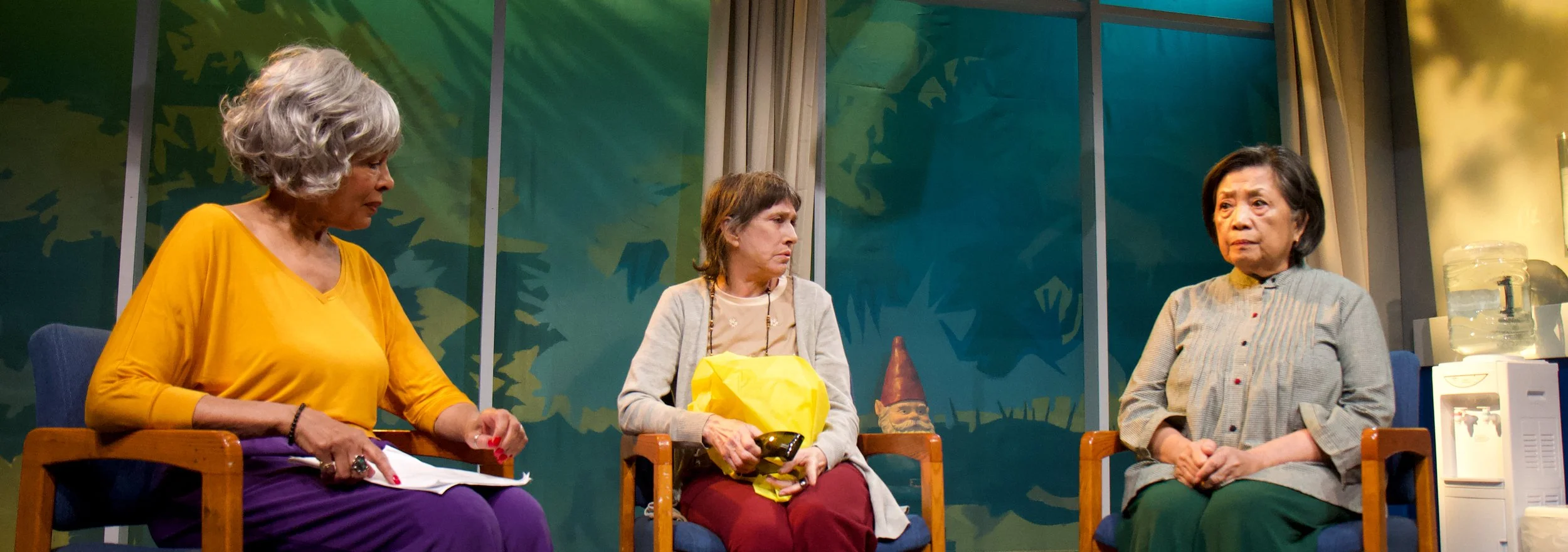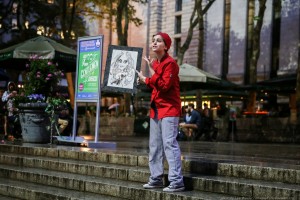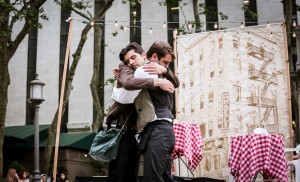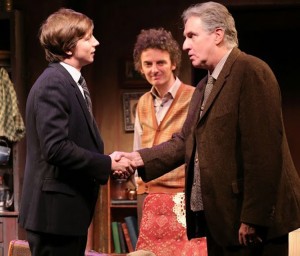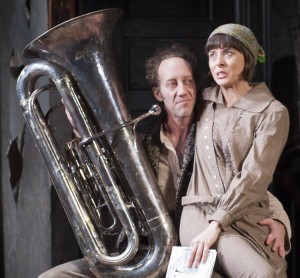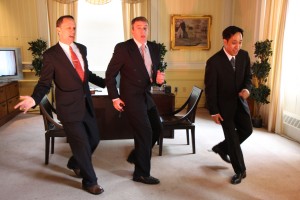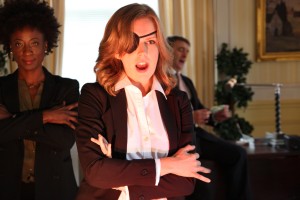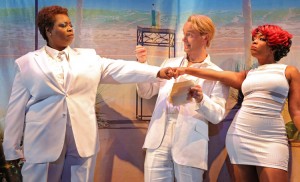In her early film career, Bette Davis set herself apart by being willing to play characters who were unsympathetic; her bad women in Of Human Bondage and Jezebel were her tickets to fame and marked her as different from other studio stars. Jesse Eisenberg is equally unafraid to take on characters who are unpleasant—even loathesome. His performance as the cold and arrogant Mark Zuckerberg in The Social Network won him an Oscar nomination. In The New Group’s production of his play The Spoils, he plays Ben, whose social graces are in much worse shape, and whose behavior is often repellent.
The actor's first two plays, Asuncion and The Revisionist, proved he was a promising dramatist. In the latter, he co-starred with Vanessa Redgrave, whose participation suggests she can spot talent, and, indeed, Eisenberg has not only written himself a terrific part in The Spoils, but he performs it with élan.
Eisenberg’s Ben lives in a high-flying modernist apartment (luxuriously designed by Derek McLane) purchased for him by his father; he shares it with a roommate he found online, Kalyan (Kunal Nayyar). Kalyan has come to the United States from Nepal to study business and has written a book; he’s not wealthy and probably couldn’t have come without Ben’s help. Ben, however, disdains capitalism and has altruistically offered Kalyan the apartment rent-free, though Kalyan is reluctant to take charity. When Ben runs into an old childhood acquaintance, Ted, who works on Wall Street and has the ability to help Kalyan, he is persuaded to bring Ted over for an introduction to Kalyan, even as he belittles Kalyan’s ambition to work on Wall Street.
The playwright builds the tension gradually in different ways. Ben badmouths Ted, particularly since Ted is about to marry Sarah Newburg (Erin Darke), a girl Ben has had a crush on since their ages were in single digits. He must, nevertheless, bolster Kalyan in his quest to land a Wall Street job even though Ben, a failed filmmaker, is disaffected and resentful of financial success in others. He talks an artistic game but he lacks inspiration. “I wish the world wasn’t a fucked up string of unfair situations that I seem to be embroiled in,” he declares with self-pitying confidence. He is also physically graceless, pushing his body into others’ spaces and sprawling all over the furniture.
Nayyar’s Kalyan is just a tad wishy-washy, manipulatable by Ben; Kalyan is devoted to his benefactor but not spineless. He is dating Reshma (Annapurna Sriram), a doctor who mistrusts Ben and speaks her mind to his face—another source of tension. Ben nonetheless tries to pull off outrageous gambits—claiming a back injury at one point—although Reshma suspects he’s faking.
Eisenberg has given the rest of the cast solid parts, and director Scott Elliott has chosen his actors wisely. Michael Zegen’s Ted is a likable, decent guy, not threatening or ruthlessly businesslike but with a blandness that wears thin quickly. Sriram’s impassioned Reshma is often at the side of the stage, texting or making cell phone calls, as any doctor might—Elliott cannily attends to the details. Darke is exceptional as Sarah: mature, sensitive, and yet devoted to Ted. In a crucial scene, Ben confesses a cringeworthy, scatological childhood fantasy to her—one that is prepared for earlier when he tells it to Kalyan. (The playwright gets further mileage out of the story in a re-enactment; three times is a charm.)
In the end, though, Eisenberg’s play is less a portrait of a young generation than a character study of someone who hasn’t found his way and denigrates the paths that others have chosen in order to justify his own failure. The questions that roil underneath it are whether success should be judged on ambition or accomplishments, and whether an artist who cannot make money at his art is really worth anything. Ben attempts to concoct a film, based on the story Kalyan has told him, to impress Sarah; when he presents it to her, she sees immediately how bogus he is.
But Eisenberg’s brief coda highlights another crucial question: Can adults be hamstrung by events in their childhood that they barely remember? If so, he intimates, redemption may be possible. Something good that Ben once did may just help him to redefine himself.
Jesse Eisenberg's The Spoils plays through June 28 at the Pershing Square Signature Center (480 W. 42nd St. between 10th and 11th Aves.). Evening performances are at 7:30 p.m. Tuesday through Friday, and on Sunday, and 8 p.m. on Saturday. Matinees are at 2 p.m. on Saturday and Sunday, with an additional matinee at 2 p.m. on Wednesday, June 24. Tickets may be purchased by calling (212) 279-4200 or visiting ticketcentral.com.

